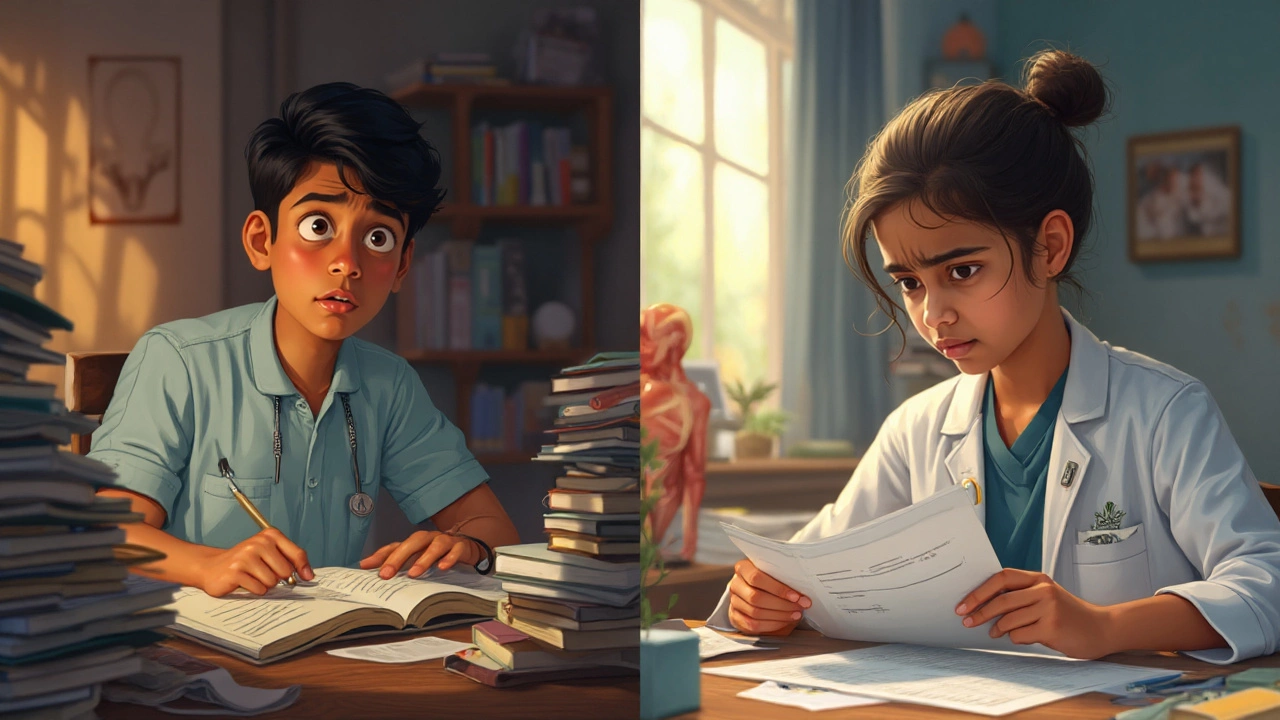
Is Law Degree Easier Than Medicine? Law vs Doctor Career Compared
Curious if law is easier than medicine? Discover the real-life challenges, study requirements, workload, and career pressures for both lawyers and doctors.
Read MoreWhen planning becoming a doctor, the journey means earning a medical degree, clearing rigorous exams, and securing a professional licence. Also known as medical career pathway, it blends academic study, hands‑on training, and lifelong learning. Medical school, a four‑year programme that blends science, patient care, and clinical rotations is the first major stop. Right after, USMLE, the United States Medical Licensing Examination that tests knowledge and clinical skills stands as the gatekeeper before you can practice.
Understanding the link between these steps helps you map out a realistic timeline. Becoming a doctor encompasses three phases: pre‑medical preparation, medical school training, and post‑graduate licensing. The first phase often includes a bachelor’s degree in sciences, volunteer work, and a strong GPA. During medical school, you’ll tackle subjects like anatomy, physiology, and pharmacology while rotating through hospitals. After graduation, the USMLE Step 1, Step 2 CK, and Step 3 exams assess everything you’ve learned and are required to earn a medical licence, the legal credential that allows you to practice medicine in a given jurisdiction. This licence influences the specialties you can choose and the hospitals that will hire you.
Because the path is demanding, leveraging the right tools can make a big difference. Online platforms like the Google Education Platform, a suite of tools for digital classrooms and collaborative study help you stay organized and access quality content anywhere. For USMLE prep, many students turn to dedicated question banks and video lectures that mimic real‑exam conditions. Pairing these resources with a disciplined schedule—say, 2‑3 hours of focused study each day—helps you retain information without burning out. Remember, the hardest licences to get, such as the medical licence, require both knowledge depth and test‑taking stamina, just like the pilot or CFA licences highlighted in recent studies.
Beyond exams, consider the broader landscape of healthcare education. Institutions in Ahmedabad, for example, are expanding their curricula to include simulation labs and tele‑medicine training, aligning with global trends. Keeping an eye on local developments ensures you’re not only ready for the USMLE but also for the evolving demands of modern medicine. Networking with peers, attending webinars, and joining student societies can also provide mentorship and insider tips that textbooks don’t cover.
When you look at the whole picture, the journey from aspiring student to licensed physician is a blend of academic rigor, strategic preparation, and continuous skill development. The posts in this collection cover everything from free language tools that can boost your communication skills with patients, to detailed guides on the toughest professional exams, and even rankings of top learning apps for 2025. Together they give you a toolbox to tackle each stage of the doctor‑making process.
Ready to dive deeper? Below you’ll find a curated set of articles that break down each step, share proven study methods, and point you toward the best platforms for mastering the content you need. Use them as a checklist, a study companion, or a source of motivation as you move forward on your path to becoming a doctor.

Curious if law is easier than medicine? Discover the real-life challenges, study requirements, workload, and career pressures for both lawyers and doctors.
Read More